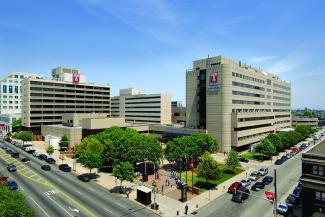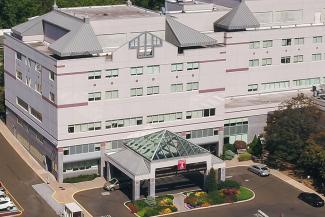The vascular specialists at the Temple Peripheral Arterial Disease Program use some of the most advanced methods to diagnose and treat patients with this fairly common but serious condition. We take steps to stop the progression of the disease, prevent disability or amputation, and reduce patients’ risk of heart problems, stroke, and kidney failure.
Managing Peripheral Arterial Disease
Peripheral arterial disease (PAD) occurs when a waxy substance called plaque builds up in the walls of one or more of the arteries carrying blood to the limbs, restricting blood flow and in some cases leading to problems like blood clotting and tissue death. Many people with PAD have few symptoms, yet early diagnosis and treatment can help prevent the condition from becoming more serious. Temple University Hospital and Temple University Hospital – Jeanes Campus have skilled staffs and sophisticated facilities to support them in diagnosing vascular disease. Our vascular treatment team can then help patients manage mild PAD through lifestyle changes and medications.
Treatments to Help Get Patients Back to Their Active Life
For PAD that has become more severe, Temple University Hospital and Jeanes Campus offer many minimally invasive options for reopening the obstructed artery, including atherectomy, angioplasty and stenting.
These procedures are performed at our cardiac catheterization facilities, which are among the most extensive in the region. We offer some of the newest treatments such as drug-coated angioplasty balloons and stents which allow the interventionists to reopen the blocked artery using a tiny balloon and simultaneously apply medication that reduces the risk of another blockage. Such minimally invasive procedures often have reduced risk and recovery time compared with traditional surgery.
If PAD has progressed to the extent that it threatens the associated limb, specialists in Temple’s Limb Salvage Center can perform interventions that maximize the patient’s chances of retaining or improving limb function, including surgeries like peripheral arterial bypass.
For patients who cannot be treated using conventional methods, Temple may offer novel therapies through clinical trials.
Rehabilitation Through a Team Approach
Our specialists are committed to patient care. Our team members who can help manage and treat peripheral arterial disease include:
- Vascular/Endovascular Surgeons
- Interventional Cardiologists
- Interventional Radiologists
- Podiatry

